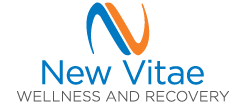The Challenge for Families:
Drugs and Alcohol have always been a part of our society. Decades ago, alcohol was used as an anesthesia in many medical procedures, THC or marijuana was used for medical treatments, and cocaine was used in experiment by Sigmund Freud. Drugs and Alcohol, and our understanding of them as addictive substances, have evolved over the years. So, my question remains. Have drugs and alcohol impacted you or your loved one’s life? Do you have a loved one with a problem? If your answer is yes, it is likely that you have heard the following comments. “Not my child!”, “They can’t be using heroin!”, “My friend only drinks at parties!”, or “My spouse drinks, but they always go to work!” Drugs and alcohol can have many painful consequences for families. Alcohol and drug problems tend to cause extended periods of high stress for the entire family.
What Families Can Do:
What does it mean when ‘those professionals’ talk about addiction as a family disease? An individual can say, “I am drinking and only hurting myself.” And yet, alcohol and drug use permeate a family system, making addiction “The Family Disease.” Often what occurs is a lack of trust, loss of communication, loss of sharing of precious moments, loss of self-esteem, in addition to many more things that the alcohol and drugs can rob from a family. It is common to deny that there is a problem, and it has been said that ‘a family member may be in as much denial as the person who has an addiction.’ Even with saying that, a family member (maybe you who are reading this article), still want things to be different. So then, what do you do as a family member to help your loved one? I have asked several members in recovery from drugs and alcohol, and here are the top six responses.
- “Don’t enable the person with an addiction.” Group members shared that an alcoholic/addict does not want the family member to do things such as, “call into work for the alcoholic/addict,” “bail me out of jail,” or “give me money.” Rather, the group suggested that familiy members should “…allow me to feel the consequences of my using alcohol or drugs.”
- “Do confront me and show me that you care.” The recovering alcoholic/addict talks about, frequently, the importance of a family member or loved one confronting their use and ‘clues’ such as needle or ‘track marks.’ This does not mean arguing with an individual when they are drunk or high. BUT, when the person with the drinking or drug problem is sober, “…speak to me about the reality of what happened and show me that you care.” Keeping “secrets” is not helpful.
- Do “set boundaries and ultimatums” with the alcoholic/addict and for yourself.
- Do “educate yourself” about alcoholism or addiction.
- “Seek support” for yourself, and guidance.
- Most importantly, confront, confront, confront the alcoholics/addict’s behavior, and “…listen to your loved one when they are ready to get help.”
Remember: you didn’t cause the addiction, you cannot control the addition, and you cannot cure the addiction. It is not your fault! Alcoholism/addiction can be a long and difficult path, and the above suggestions may help to quicken the alcoholic’s/addict’s seeking help. But remember to always to stay safe. Safety is a number one priority!
Resources for Families:
If you want to reach out for help, here are some suggestions.
- Contact your local Al-Anon or Nar-Anon for support. These self-help groups are for families of loved ones with alcohol and drug problems. Many families find relief, support and insight through attending such groups.
- Seek Outpatient Counseling to learn how to better manage the situation.
- If your loved one is open to an evaluation, check your insurance card for outpatient treatment centers in your area. We strongly encourage the family member to attend the session so that the therapist could speak briefly with the family member along with the individual.
- Don’t give up! Patience and persistence is needed to work through addiction. There is support for you!
Contact New Vitae Wellness and Recovery today at 610-965-9021.
Pamela DeHart, MA, LPC, CAC
Clinical Supervisor, New Vitae The Mitchell Clinic






